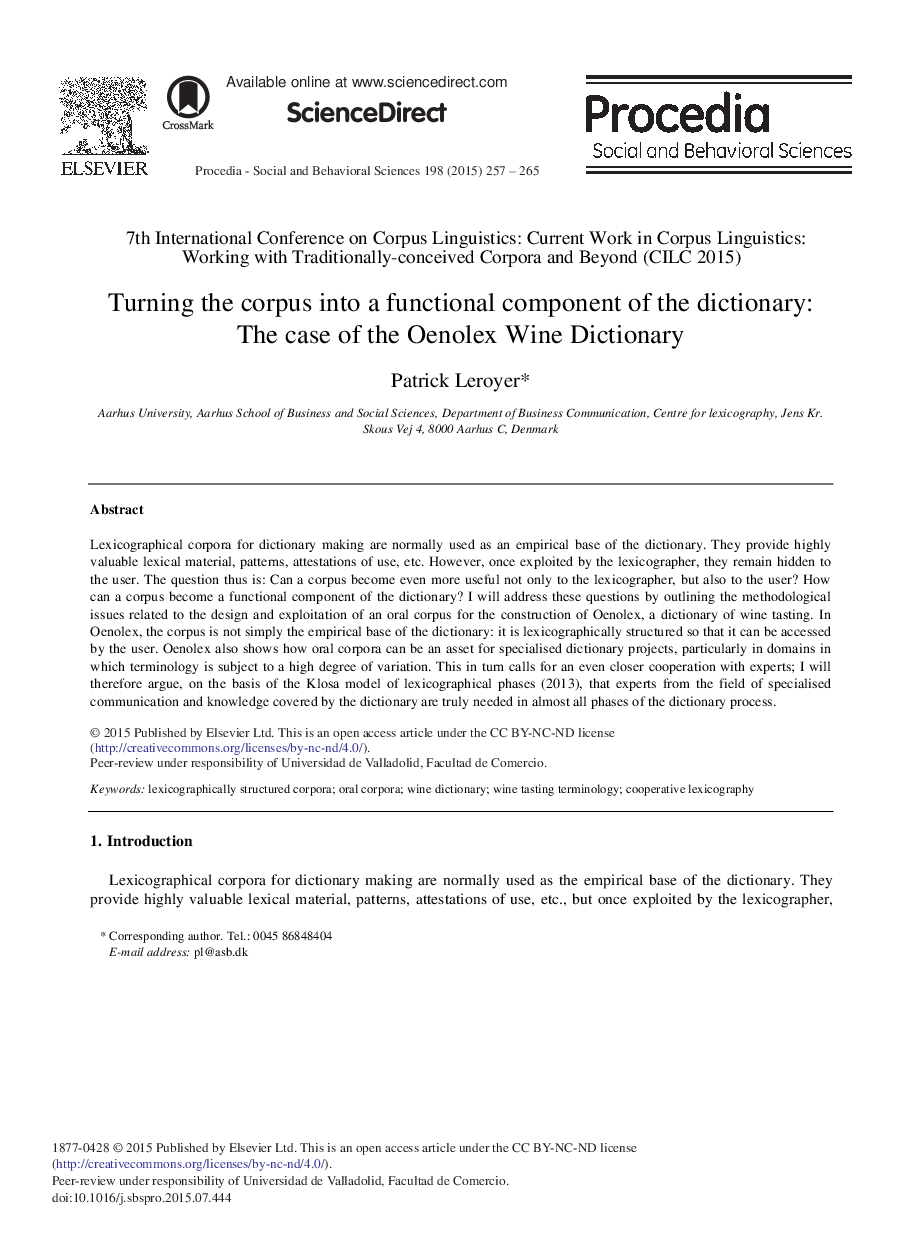| Article ID | Journal | Published Year | Pages | File Type |
|---|---|---|---|---|
| 1110948 | Procedia - Social and Behavioral Sciences | 2015 | 9 Pages |
Lexicographical corpora for dictionary making are normally used as an empirical base of the dictionary. They provide highly valuable lexical material, patterns, attestations of use, etc. However, once exploited by the lexicographer, they remain hidden to the user. The question thus is: Can a corpus become even more useful not only to the lexicographer, but also to the user? How can a corpus become a functional component of the dictionary? I will address these questions by outlining the methodological issues related to the design and exploitation of an oral corpus for the construction of Oenolex, a dictionary of wine tasting. In Oenolex, the corpus is not simply the empirical base of the dictionary: it is lexicographically structured so that it can be accessed by the user. Oenolex also shows how oral corpora can be an asset for specialised dictionary projects, particularly in domains in which terminology is subject to a high degree of variation. This in turn calls for an even closer cooperation with experts; I will therefore argue, on the basis of the Klosa model of lexicographical phases (2013), that experts from the field of specialised communication and knowledge covered by the dictionary are truly needed in almost all phases of the dictionary process.
